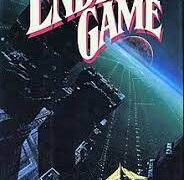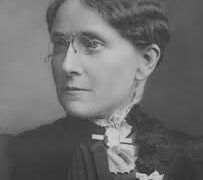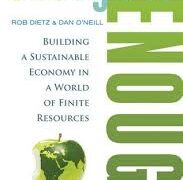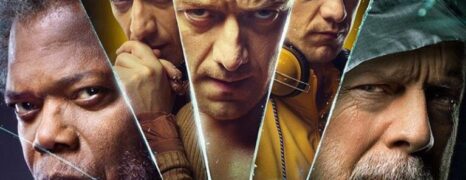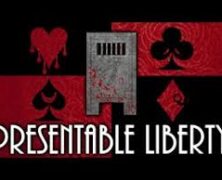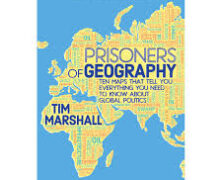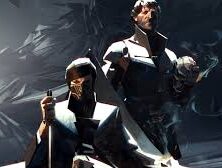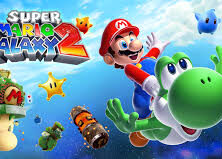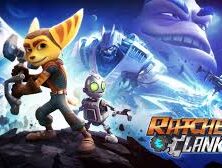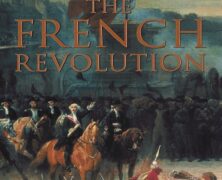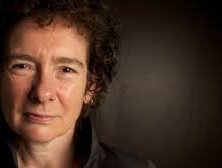“Ender’s Game” is one of the saddest books I have ever read. It brings together childhood innocence and hardcore science fiction for a truly memorable read. The premise is this: Earth has been attacked twice by an alien race known as The Buggers and both times humans have just barely fought them off. To prevent a third onslaught Earth’s fleet recruits and trains the brightest children in a space station called ‘Battle School.’ Ender is his parents’ third child, commissioned by the fleet after his siblings were shown to be extremely clever. Sent to Battle School at an extremely young age he is manipulated by the adults into becoming a weapon of war. Orson Scott Card creates a truly wonderful but depressing story with a shocking end. This is one of the hallmarks of modern science fiction and I would truly recommend giving it a read. There are also sequels set in the future: “Speaker for the Dead,” “Xenocide,” and “Children of the Mind.” Plot: 9 Characters:10 Writing:8 Concept:8 Total...
Final Fantasy VII Remake: Review by Robert Palmer
posted by Cloud
A long time coming Everything about Final Fantasy VII Remake seems to have been protracted, from its announcement to development to release. The original Final Fantasy VII was released all the way back in 1997 and was hailed by many who played it as a classic . As far as role-playing games go, the seventh instalment of the series is commonly accepted to be a pioneer in its genre, selling over 10 million copies during its original release; the game is available on all modern consoles and mobile devices. While the story of a group of misfits banding together to save the world from destruction and demigods inspired its players, and its tactical turn based combat system was engaging and strategic, the game’s visuals have not aged well. At all. The character models of the original release are blocky, deformed messes that only slightly resemble the characters they are meant to portray. Due to its popularity the developer Square Enix made various spin-offs including prequels and a full sequel in movie-form. However, what fans have been clamouring for is a fully realised, big budget remake of the original in order to bring the game up to modern standards, with cutting edge graphical quality and top notch voice acting while, most importantly, making it fun to actually play. And so in 2015 they announced that the game would be recreated from the ground up…. with a catch. More to come You see, this game is only part one of the Final Fantasy VII Remake project and only covers around ten percent of the events of the original story. As a result the “full” story will be told over the course of an as-yet-unknown number of games. This is absolutely a cynical cash grab but at the same time I wouldn’t accuse its developers of laziness: there is clearly some effort and passion behind this game as well. After five secretive years of development the game has finally been released and must meet fan expectations preceding its 5 years’ gestation. Contemporary game Final Fantasy VII Remake eschews the traditional fantasy tropes of castles, kingdoms, monarchical bloodlines and prophecies in favour of bleak, hyper industrialised cityscapes. Castles and dungeons are replaced with corporate skyscrapers, energy reactors and unethical test labs. Monsters, swords and sorcery are still present but are interwoven with a sci-fi, near-future aesthetic to create a world ripped both from stories of magic and wonder as well as grim dystopian futures watched over by ruthless corporations. What’s the story? The main story follows the adventures of Cloud Strife, an anxious, distrustful protagonist who just so happens to be a rogue super-soldier turned mercenary. He’s the kind of person you cross the street to avoid and his absurdly oversized weapon of choice, the gargantuan Buster Sword, certainly contributes to that, along with his cobbled-together soldier attire that gets more confusing the more you look at it. His hairstyle, a strange formation of blond spikes, suggests that the reason he turned to mercenary work is so he can afford tubs of hair gel. He turned his back on his former employer, the Shinra Electric Power Company, whose presence permeates the entire city of Midgar in the form of private armies, spies, assassins, and weaponised machines. How does it work? The game begins with a memorable mission to bomb a Shinra reactor providing Mako energy, this world’s equivalent to fossil fuels, which is quite literally being sucked directly from the soul of the planet. You see, in his search for meaning in his life and most importantly money, Cloud has agreed to work for an organisation of extremist environmentalists called Avalanche, led by the eccentric Barret Wallace. Barret is a man with a machine-gun attached to his prosthetic arm and has a stature big enough to suggest that he has eaten at least two men whole. The two succeed in their mission while...
The Book of Ecclesiastes or “Stuff Trump hasn’t read.”...
posted by Cloud
I just read all of the Book of Ecclesiastes though it mostly makes no sense at all. Several times it does reveal the true purpose of existence though, which is nice. “There is nothing better for mortals than to eat and drink, and find enjoyment in their toil,” it says; then he (he is only known to us as “a Royal Philosopher”) says it again a slightly different way: “I know that there is nothing better for them than to be happy and enjoy themselves as long as they live; moreover, it is God’s gift that all should eat and drink and take pleasure in all their toil.” Then he says it again: “Likewise all to whom God gives wealth and possessions and whom he enables to enjoy them, and to accept their lot and find enjoyment in their toil – this is the gift of God.” And then he says it a fourth time: “commend enjoyment, for there is nothing better for people under the sun than to eat, and drink, and enjoy themselves, for this will go with them in their toil though the days of life that God gives them under the sun.” Now, you might be thinking, “Alright, alright, we get it,” but just in case you might say so without really getting it he tells it a fifth time but this time with a twist: “Go, eat your bread with enjoyment and drink your wine with a merry heart; for God has long ago approved of what you do. Let your garments always be white; do not let oil be lacking on your head.” It’s likely that those people who think being gay is a sin because it says so in the Bible won’t get so bothered about not...
“Use wore off the glamour of traditions:” “A Wheel within a Wheel” by Frances E. Willard...
posted by Cloud
Frances E. Willard is little known now; I only came across her myself recently and only today did I read her wonderful piece of prose about the bicycle called “A Wheel within a Wheel: How I Learned to Ride the Bicycle.” Who knew that the bike was a political as well as a leisure pursuit? Willard recounts how she was free and wild and able to grow stuff in her garden and follow “the occupations of the poulterer and the farmer ” because of her “inveterate opposition to staying in the house.” She was what we might call nowadays a “tomboy,” a term which I suspect is no longer politically correct. But everything changed for at the age of sixteen at which point she was entrusted with becoming a young lady: “the hampering long skirts were brought, with their accompanying corset and high heels; my hair was clubbed up with pins,” she had, in other words, to “cop on” probably so that she could find a husband. “My work then changed from my beloved and breezy outdoor world to the indoor realm of study.” Enter the bicycle! Cycling wasn’t entirely new to her at the age of fifty-three, a time when she was without her mother who’d died and was feeling that her “mental and physical life were out of balance.” She had tested out tricycles – the ones with three wheels – which women were more suited to, presumably because it was near impossible to fall off them. One fascinating reflection on the bicycle is that it was the means by which people who could never afford either the danger or the cost of a horse could nonetheless experience through “this bright invention […] the swiftness of motion which is perhaps the most...
“Enough is Enough” by Rob Dietz and Dan O’Neill...
posted by Cloud
The authors argue here that GDP is not a good indicator of global health or happiness. It also rises in line with population and population has exploded – from 1.5 billion in 1900 to almost 8 billion in 2020. Our behaviour, especially when it comes to consumption, means that we’ve passed the “safe operating boundary” for three earthly activities: climate change; biodiversity loss; and the nitrogen cycle. Our ecological footprint, the land we need to make the stuff we want and to absorb the waste products of that activity, is heavy and large because our practices are unsustainable. Dietz and O’Neill successfully guide the reader through a story of where we’re going unless we change and while the book is certainly not jargon-free, what technical terminology there is is well-explained. For instance, the EROEI is simply “energy return on energy invested;” in other words, what’s the ratio of benefit to cost with respect to resources. In 1930, the EROEI of oil (the benefit of having the oil to use compared with the cost and effort of its acquisition and refinement) was 100:1; in 2005 that ratio was 15:1. Put another way, using oil has become more than six times less efficient in 75 years. We’re told – some are reminded – that GDP (gross domestic product) is linked directly with pollution: the more GDP, the more pollution, and yet we think GDP is synonymous with happiness but it’s not. Sure, income is good; we all like to have money to buy the things we like to have but this is only true to a certain point beyond which there are ever-decreasing returns. You only need a certain amount of money to be happy; after that it just becomes about competition, wanting to have more...
The Cloud welcomes a new writer: Review of “Glass” by Robert Palmer...
posted by Cloud
Warning: This article contains spoilers for “Unbreakable,” “Split”, and minor spoilers for “Glass.” “Glass” has a strange existence. It is a sequel to M.Night Shyamalan’s previous movies “Split” in 2016 and “Unbreakable” in 2000, released 16 years apart, and is a collaboration between Universal and Disney who made the previous two films. The big twist ending of ”Split” was that it was a sequel to “Unbreakable.” This means the trilogy’s completion took 19 years for most of which nobody knew it was a trilogy. However, the film is as strange and confusing as the circumstances of its production. The film begins with David Dunne (Bruce Willis), the protagonist of “Unbreakable,” encountering Kevin Crumb (James McEvoy), the antagonist of “Split,” on the street and using his powers of seeing visions of others, tracks him to a warehouse where Kevin has kidnapped a group of teenagers. Kevin has 24 separate personalities, known as the Horde, and one of them, The Beast, possesses superhuman strength. David and Kevin fight only to be taken into custody by a mental asylum once they are found. The asylum also has in its care David’s nemesis, Elijah Price (Samuel Jackson), also known as Mr. Glass. Glass has brittle bones but has superior mental capabilities. The lead psychiatrist aims to prove that people with superhuman abilities are simply traumatised people with a medical condition. Remarkably, the titular character doesn’t appear until around half an hour into the movie and doesn’t get a line of dialogue until the hour mark has passed. Still, he steals the show in most of his scenes and where he doesn’t Kevin’s personalities take the spotlight. The way McAvoy can change his body language and accent in a single scene ranging from a nine-year-old boy to a polite mother to a teenage girl to the feral Beast is spectacular. The cunning plan by Glass is also one of the highlights and is a joy to watch unfold. The music is only present when necessary and drastically improves the atmosphere of a scene. This is where I stop singing this movie’s praises. The side characters in this movie don’t get much room to grow and all the characters introduced in this movie exhibit stiff acting or dialogue that is painful to witness. In particular, Casey, the returning protagonist of “Split,” is reduced from a smart character that escapes from the clutches of the Beast to a mere plot device that only serves to calm him down and also seems to have developed a sort of Stockholm Syndrome which I found disturbing. The pacing fluctuates between relatively fast to a snail’s pace, especially in the second act, where it also seems that David disappears for what feels like a long time. This is slightly redeemed by Mr. Glass and the Horde, who are simply more interesting characters. There are also many, many coincidences that only exist to advance the story, such as: why there are only around 3 security guards in the area where the three most powerful men in the world are being held? Why do all the main characters just so happen to be in the same location at the climax of the movie without contacting each other or some not even knowing each other? Now, the ending. Let me just say that Shyamalan’s trademark ending twists appear here in full force. One of them makes some sense in the story and the barrage of twist after twist and false ending after false ending made me wish for the end. David also had the table scraps of what seemed like a character arc but it was concluded simultaneously in the worst and funniest way possible. The grand conclusion to the heroics that appears in all three movies involves a puddle. I am not even joking. The last scene had some potential but went in the complete opposite direction of what I think should...
The Marvel of Computer Games by Arran Denieffe...
posted by Cloud
The marvels of today’s world are technological. Technology is responsible for the state of the world, good or bad, present and future and that in itself is something to marvel at. One of the things I truly love and consider a marvel are video games. They are, in my view, more than mere entertainment. Take the graphics for a start. As technology advances so do graphics and so games become increasingly realistic, testing the boundary between the virtual and the real. “Uncharted 4 – A Thief’s End” looks incredibly, as long as you have an equally incredible TV. But realism isn’t the only thing a game needs to be deemed a classic. Old games like “Doom,” “Final Fantasy” and “The Legend of Zelda” are amongst a multitude of games still beloved by the gaming community despite their old pixel graphics. Even some of the infamous “RPG maker” like “Mad Father” and “Corpse Party” games have attained cult status. The fact that games with inferior graphics can still be fantastic is something to be admired. Another aspect of video games that I love is artstyle and how much variety there can be. Games can be realistic looking but they can be cartoonish, hand-drawn, anime, pixelated and so on. One recent example of a game with a gorgeous artstyle would be “Cuphead.” Despite its funny name, I would say it is one of the most stand out games this year.It is done in the old, cartoonish style like the very first Mickey Mouse animations. The game is made with such love and respect for the artstyle it even has old-school sound effects as well. This game has quite the nostalgic factor to it though I may be too young to fully appreciate it! “Obami” is another...
Mario and Rabbids’ Kingdom Battle Review by Max Keegan...
posted by Cloud
Mario, like I said before, is one of the most recognisable gaming icons of all time. The Rabbids? Not so much. They’re often hated for their annoying humour and stealing Rayman’s spotlight. Personally, I’m actually a fan of the Rabbids, with Rabbids Go Home being an amazing adventure game and their TV show being pretty funny too. So Nintendo and Ubisoft decided to mix these two together into… a tactics game? It’s better than it sounds. The story is that a Rabbid is fusing everything with Rabbids thanks to stealing a merging headset from an inventor. Her robot companion Beep-O ends up in the Mushroom Kingdom and it’s up to Mario and Co. and some Rabbids dressed up like them to save the kingdom and defeat Bowser Jr. The game is very funny and the characters are likeable. The gameplay is like X-COM, but with Rabbids and Mario. There are eight playable characters and you can equip them with blasters, sentries, shotguns and grenade ducks. Don’t ask. Each hero has different abilities: Mario can attack even when it’s not his turn with Hero Sight; and Rabbid Mario can lure enemies in closer with Magnet Dance. The game is fun to play and all of the characters have great weapons and abilities. Every world has a mid-boss and a boss. Phantom is my favourite boss, especially with his song. It’s always satisfying to win a level. However, there are some flaws. The game can get pretty difficult, with the Spooky Ziggies’ ability to stop you from attacking and the escort missions and getting to point B missions can take forever. While I’m not done with the game, Mario + Rabbids’ Kingdom Battle is a great game. With its good humour and gameplay, I’m proud to...
Prisoners of Geography by Tim Marshall...
posted by Cloud
The full title of this wonderfully informative and sympathetically written jewel is Prisoners of Geography: Ten maps that tell you everything you need to know about global politics. Tim Marshall has a list of credentials the length of his driveway: his blog, for instance, Foreign Matters, won the Orwell Prize in 2010. I like Tim Marshall because he writes like a genuine teacher; he wants you to get it and so used simple language and clear reasoning. In fewer than thirty pages he explains why Vladimir Putin appears to many Europeans to be aggressive, war-like, a sabre-rattler, a Cold Warrior as it were and why such an impression might be said to be simplistic. It’s mostly about geography with a generous smattering of history. Marshall reminds us that geopolitics haven’t gone away, even in this, our 21st century. Russia, he won’t let us forget, is “vastest.” However, it’s mostly snow. The Western end is where all the action is it seems. Some of the story I already knew. The end of the Second World War saw Russia occupy most of what Germany had taken during the war but soon enough NATO put paid to any especially grandiose designs The Bear had on Europe. Even its answering military fraternity, The Warsaw Pact, broke apart and most of it members joined NATO. Putin laments the subsequent break-up of the USSR and blames Gorbachev for weakening Russia. Russia has genuine national security concerns in Ukraine because of the behaviour of NATO and the EU. But while no power would ever consider invading Russia unless it deemed it utterly necessary due to all that size and snow, there are several ways to skin a bear. The EU, for instance, is actively trying to decrease its reliance on Russian gas...
FNAF World Review by Max Keegan...
posted by Cloud
Five Nights at Freddy’s is a horror franchise which I have yet to play. It has been quite successful, yielding a book, merchandise, an attraction at Fright Dome and even a movie in the works. Eventually, Scott, the creator, decided to make an RPG. I was excited since the concept seemed amazing and I love the Mario & Luigi RPG series. Then I played the game: it was disappointing to say the least. FNAF World is an RPG where you walk around the world, fighting enemies and stopping the glitches from happening in the world of the game. First, I should say that it gets a B+ on graphics and concept and a C on Story. Unfortunately, it gets a D- on everything else. I’m not saying this to complain about the creator since he seems nice; it’s just that the game is not good. The battle system is annoying, since it isn’t even turn-based and you can’t predict when the enemies are going to attack twice before you can. You start off with Freddy, Bonnie, Chica, Foxy and their Toy counterparts. You unlock more characters by fighting them at random. Sometimes, the enemies can take forever to kill and kill half my team which for me is stressful. If you want to flee you need to hold ‘R’ on your keyboard – if it decides to work properly. And not being able to dodge enemy attacks, except with ‘Neon Wall’, isn’t bad in Paper Mario: Colour Splash. You need to find buttons to open gates to get to the final boss, but when I played it one of the buttons in the game was in an area I hadn’t explored yet. It also gets an award for being the first game to make...
Dishonoured 2 by Jakub Zancewicz...
posted by Cloud
Dishonored 2 is a stealth genre video game made by Arkane Studios and published by Bethesda Softworks. It was released on the 11th of November 2016 on ps4 Xbox 1 and PC. Gameplay Dishonored 2 has many great attributes. A single mission can be played in a multitude of ways. Do you want to be seen by every guard in the city, running in with your sword and pistol, eliminating everyone in your way? or maybe you’d prefer to sneak around not making a sound and escaping the guard patrols’ attentin?. Don’t worry if you have to move somewhere where guards are looking around; you can get rid of them by using a Tyvian choke hold which is just a fancy way of saying that you can choke your enemies to put them to sleep. Finally, the best part of the gameplay – the exploration and arsenal. As a stealthy assassin you possess many useful gadgets to aid you in your missions. Your sword is your primary weapon. You have a pistol but only use it when you are in a critical situation or else all the enemies will descend upon you. Your crossbow fires many types of darts from the weak and regular crossbow bolt to the powerful and dangerous incendiary dart that burns enemies. If you are trying not to kill your opponents you can use a sleep dart. Dishonored 2 is unique in that the protagonist has special powers that helps him in difficult situations. There are two characters to choose from when playing Dishonoured 2 and each of them has a different set of abilities and powers. Emily Kaldwin has a more passive set of powers, meaning that her abilities are non-harmful but that doesn’t mean she isn’t dangerous. Corvo...
Afterword to the First Year Flash Fiction Competition by Cian Morey...
posted by Cloud
There once was a man called William Cuthbert Faulkner, whose writing was almost as deep and meaningful as his moustache. He was a man who liked to say things as they were, with no frilly bits thrown in to make it sound more interesting. He just smoked a pipe to give himself some much-needed gravitas instead. Faulkner dealt in the simple facts of life. This was one of them: “If a story is in you, it has got to come out.” Now, Faulkner lived way back in the first half of the 20th century when things like meaningful moustaches and pipe-smoking were commonplace. Some might claim that he would be thoroughly out of place today. But his writing is relevant even now, and Coláiste an Spioraid Naoimh’s first Flash Fiction Competition for 1st Years has proven that. When we launched this competition, we knew that there was a story in each and every 1st Year, even if they didn’t know it themselves. Our job, on behalf of the moustachioed Faulkner, was to find away to “get it to come out”. And to our delight, the response to the competition was overwhelming. We received over two dozen excellent submissions in total, all of an exceptionally high quality, across a wonderfully wide range of themes and genres from clowns to inept house burglars, from malicious Weetabix to stranded children. It was a joy and a privilege to read them all, and a great challenge to decide on the three best. In the end, though, the decision was finally made. The three prize-winning stories are available to read on this very website. But it wouldn’t be right to just leave the competition with such an abrupt end as that. At CloudofThink, we encourage both writing and learning. The great thing...
Super Mario Galaxy 2 by Max Keegan...
posted by Cloud
Mario is the best-selling video game franchise ever. There may be a few unpopular Mario games (cough cough Hotel Mario, cough cough) but nevertheless, Mario is the king of video games. The Wii game – Super Mario Galaxy – received enough critical acclaim for Nintendo to make a sequel. Its plot isn’t as good as the original. The story begins with Peach telling Mario to come to the castle for a cake during the Star Festival. Along the way Mario finds a Luma who goes into his hat. However, when Mario gets there, Bowser has arrived. He traps some Toads, causes chaos, kidnaps the princess and flies away. Some other Lumas send Mario to another galaxy where he gets a Power Star. He ends up getting a Starship shaped like his head and goes off to get Grand Stars, stop Bowser and save the princess yet again. The gameplay is incredibly fun and addictive. Mario can jump and stomp on enemies; players can make him perform a spin attack by shaking the remote. The game uses the Nunchuck to move Mario around. Mario also has some power-ups like the Fire Flower, the Cloud Mushroom, the Rock Mushroom, the Rainbow Star and the Bee Mushroom. Yoshi appears in the game and can eat enemies, pull things with his tongue and flutter jump; he even has his own set of power-ups. In every galaxy you can choose a mission to get a Power Star. There are some mini-bosses guarding the Stars occasionally. You need Power Stars to unlock gates to get to the Grand Star which unlocks the next world. To get the Grand Star, you must fight either Bowser Jr or Bowser himself. Despite these virtues, Super Mario Galaxy 2 is imperfect. The Dash Berry...
Ratchet & Clank Review by Max Keegan...
posted by Cloud
Ratchet & Clank is a very successful video game series and one of my personal favourites. It’s so successful that it’s been made into a movie directed by Rainmaker Entertainment that, unfortunately, received unfavourable reviews as a movie that kids will enjoy but adults will not. Rainmaker lost $10 million on the movie and blamed Disney. I however think it’s great and I’ll explain why in a spoiler free review. The story is about a Lombax named Ratchet, a mechanic who dreams of becoming a Galactic Ranger. He meets a Sentry-War Bot defect named Clank. They join the Rangers and have to stop Chairman Drek and his chief scientist Dr Nefarious from destroying planets using a weapon known as the Deplanetiser. Some people say it’s very much like A New Hope from Star Wars. The jokes in the movie are really good and very well put together, the first few moments are no exception. The action is also very good to watch with the War Bots fighting the Galactic Rangers. The characters are all likeable and the villains are very fun to watch. There’s also a very good plot twist that I wouldn’t have seen coming if I hadn’t played the game on which the movie is based. However the movie’s not perfect. Sometimes the action can be a bit weak and they don’t show of a lot of weapons like in the games. In the end, The Ratchet & Clank Movie is in my opinion, a great movie. It is rated G, but PG would be more appropriate in my view. Nevertheless, it gets an 8 out of 10 with the title of...
The French Revolution by Christopher Hibbert...
posted by Cloud
Recent events in France ensure that that country remains an important focal point for anyone interested in world affairs. Many of us perhaps fall into the trap of believing that terrorism is a recent phenomenon; it certainly isn’t. The French themselves have been masters of it, in France itself, in Africa (Algeria is a notable example) and elsewhere. The tragic and brutal slaying of innocent people in the streets of Paris and in France’s other cities and towns has precedent. Those of us familiar with the French Revolution from school may know that the guillotine was used to kill the king and later his wife. The names Robespierre and Napoleon ring bells. However, we may not know a whole lot more besides. Christopher Hibbert’s highly readable and detailed account of the Revolution is a real eye-opener. His treatment of the subject is thorough without being exhaustive or overly dense. He is particularly strong on the personalities involved, Mirabeau and Danton being two of my favourites. It all starts with the king. King Louis XVI strikes one as a man unsuited to the throne. He was smallish, with poor posture and reputedly impotent. He liked to read and was disciplined enough to teach himself English. But he liked to eat and his wife, Marie Antoinette, felt the need to deny him access to pastry. She, for her part, was Austrian and rumours abounded of her sexual exploits and infidelity. It was eight years before she bore her husband their first child. In the late eighteenth century, about 26,000,000 people lived in France, the vast majority of them in the countryside, working in agriculture. Poverty was widespread; Hibbert quotes two English travellers’ observations of “terribly ragged” children and peasants with the appearance of “ravenous scarecrows.” Taxes...
“Why be Happy when You can be Normal?” by Jeanette Winterson...
posted by Cloud
This is an extraordinary autobiography. It feels like a novel because of the vivid and persistent way she presents her mother to whom she only refers as “Mrs Winterson.” The latter is impossibly mad and cruel and just plain weird. And yet you believe that this is Jeanette’s mother or at least her adoptive mother. Her biological mother was “a little red thing from out of the Lancashire looms…from the village of Blakely where Queen Victoria had her wedding dress made.” One can hardly imagine the writer would have been worse off had she not been adopted; sure, her real mother was just 17 years old and probably living in penury but at least she might have been loved. Mrs Winterson, if one wished to be compassionate, could be said to have been capable, to a modest degree and in a very odd fashion, of loving Jeanette but she certainly failed miserably to understand her. One instance of this abject incompetence relates to book-reading: “It never occured to [my mother] that I fell into the books – that I put myself inside for safe-keeping.” This failing is especially significant when we read that her mother burned all her books. And this is just an example of how Mrs Winterson failed as a mother even back in the 60s when things were not as touchy-feely and PC as now. While “there were plenty of kids who didn’t get fed properly” there must have been few enough who were locked in the “coal-hole” or outside on the front door step all night. There isn’t time here to offer a definite inventory of Mrs Winterson’s parental transgressions; suffice to say that neither Jeanette nor her father believed for a moment that Mrs Winterson would be happy in...
A Month in the Country by J.L. Carr...
posted by Cloud
“A Month in the Country” recounts the time our hero Tom Birkin spent restoring a mural in an old church in Oxgodby. He’s a veteran of The Great War and hasn’t come away from it unscathed. The work excites him and seems to be just what he needs perhaps to recover from the war but also to satisfy his innate need for solitude. Having learnt the trade from Joe Watterson who’d told him, “It’s a profession, my boy,” one that would allow him to “starve without competition.” Birkin lands a job from Reverend J.G. Keach by whose wife Birkin is enchanted. The Reverend doesn’t attempt to conceal his contempt, if not for Birkin then for his work. The money could be better spent elsewhere. Nonetheless the job opens up a world of sorts for Birkin not least because of the attentions of some compassionate and welcoming locals such as the teenaged girl Kathy Ellerbeck. Oxgodby is beautifully bucolic and Carr gives it due regard in the language. There’s something very English about both Carr’s and Birkin’s love of the countryside and it seems especially poignant in light of what Englishmen suffered just a couple of years before in France. Some of the description is idyllic: “Why the place was a latter-day Eden!” More of it is gothic: “the hair rose on my neck and I turned with utmost reluctance, really afraid of what I might see…[the cat] had a fluttering song-thrush clamped in its bloody jaws and glared through the window, malevolently eyeing each of us in turn.” More than once does nature (in the form of tree branches) encroach on civilisation by pressing against windows. Objects are imbued with a strange sadness; the dysfunction in relationships is obliquely adverted to; the war is...
“The Finkler Question” by Cian Morey...
posted by Cloud
In my opinion, this should most certainly have won the Booker Prize. As it most certainly did. That’s not to say everyone should most certainly read it. Nota bene – in my opinion. “The Finkler Question” is quite simply a book about what it means to be Jewish in modern London. It follows Julian Treslove – morbid, hopelessly idealistic and powerfully miserable pseudo-widower who spends his days mourning for the lost love he never achieved in the first place – as he sets out on a subconscious quest, in the aftermath of a strangely philosophical mugging, to find a side to himself that he never knew he might have had. Influenced along the way by his two friends Libor Sevcik and Samuel Finkler, and his own gilded notions of a mysterious culture, Treslove turns his world upside down to strive to become someone and something else – regardless of whether or not there was a good reason for having his world the right way up. Alright, let’s get the bad bits over with. Firstly, this is a niche book. An extremely niche book. Howard Jacobson writes for a very specific audience. That is, Howard Jacobson writes almost exclusively for Jews; well, for those who are interested in Jews and Jewish culture. I, for example, am not a Jew. I’m barely a Christian. Nevertheless, I am fortunate in that I am one of the few non-Jewish people who would enjoy this book. But I can understand perfectly well why the vast majority of people would not. The book doesn’t make much of an effort to be accessible to all. Prior knowledge is needed going into this or else a hell of a lot of time; concentration and perhaps extra research is needed in the middle...

